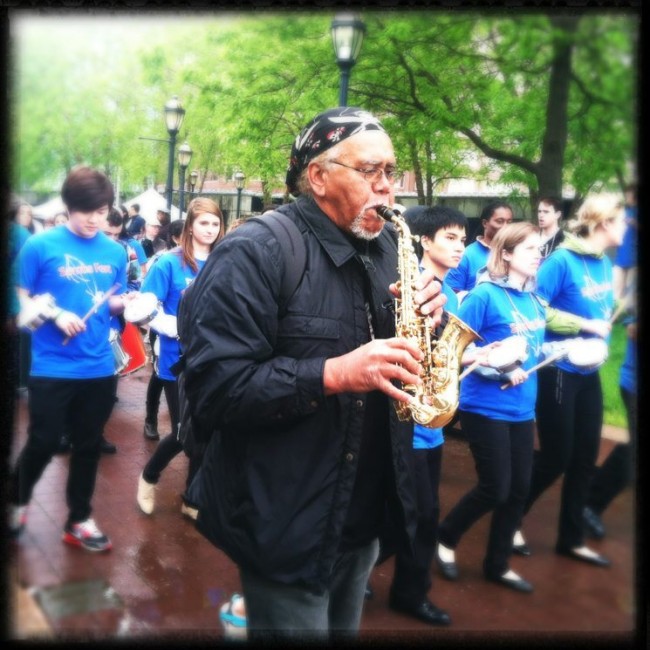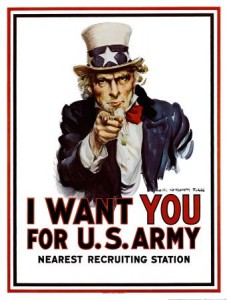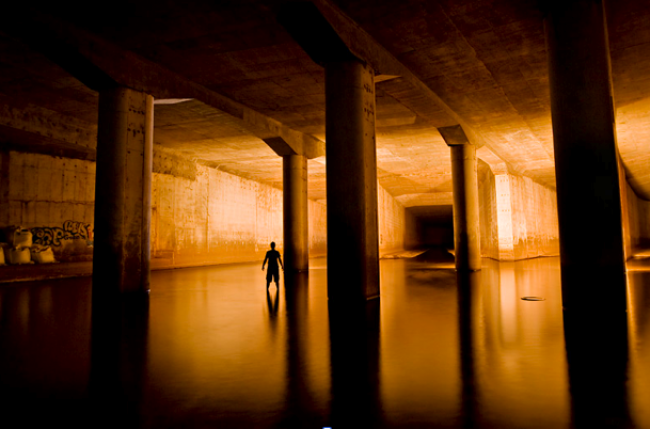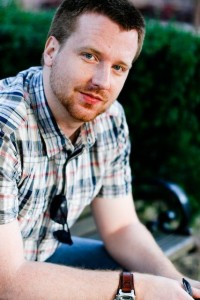Home » American History (Page 4)
Category Archives: American History
Into the Archives: CT Historical Society Research Center

By: Emma Sternloff (History major, Class of 2013)
My visit to the Connecticut Historical Society Research Center with Professor Wickman and Francis Russo offered a unique opportunity to connect with my thesis subject. I’m writing about James Hammond Trumbull, a nineteenth-century scholar and the first librarian of the Watkinson Library, and his study of Native American history and language. Trumbull was a polymath, interested in everything from botany to bibliography, but he had a particular passion for Connecticut’s colonial past. Accordingly, he was an enthusiastic member of the Connecticut Historical Society, joining the organization in 1847 and serving as president from 1863 to 1889. Given Trumbull’s long-standing connection to the CHS, I had high hopes for the archives, and I was not disappointed. I came across several Civil War-era letters written to Trumbull in his capacity as Connecticut’s Secretary of State.
(more…)
In the News: The Cities Initiative

“Fueled by a desire to probe the connections between cities in this country and abroad, Trinity has launched a co-curricular initiative this academic year, “Cities: Global Urban Experience across Time & Space.” The lead professors are Dario A. Euraque, professor of history and international studies, and Garth Myers, Paul E. Raether Distinguished Professor of Urban International Studies. The half-credit course (COLL-131-01) is affiliated with 19 courses having urban themes. They include seven first-year seminars.
(more…)
History Dept. Welcomes Tom Wickman
By: Prof. Tom Wickman
I am thrilled to join Trinity’s history department and American Studies program. I bring to the study of early American history a central interest in the relationship between environment and power. My current research project, “Snowshoe Country,” is a political and environmental history of a contest over the ways that Native Americans wintered in northeastern North America in the seventeenth and early eighteenth centuries. In 2012-13, I will offer courses on “North American Environmental History, 1491-2012,” “Food and Power in the Americas, 1492 to 1900,” “Native America, East of the Mississippi, 1497-1839,” and the introductory survey, “U.S. Colonial Period through the Civil War.” It will be a privilege to work with great students and colleagues on such a beautiful campus! As a former resident of the Hartford area, I look forward to returning and making Connecticut home again.
Mixashawn Rozie ’12 Performs at the Samba Fest

Mixashawn Rozie is not only an IDP adult student, who will be graduating from Trinity with a B.A. in History in a few weeks, he is also a well respected artist and musician As stated on his website, Mixashawn has “captured and enlightened audiences in the United States and Europe for more than three decades. His incarnation as The Wave Artist draws upon a heritage of multicultural innovation that spans four centuries and both sides of the Atlantic Ocean. In applying to his arts an ancient understanding of waves in their multiple manifestations — sonic, aquatic, percussive, harmony — Mixashawn expresses a reverence for the unity and universal qualities that all waves possess and celebrates the unity of existence.” This past Saturday he performed Trinity College’s 6th Annual Samba Fest at the Mortensen Riverfront Plaza in downtown Hartford.
(more…)
Professor Joan Hedrick Delivers Annual Wassong Lecture
 |
|---|
| From left to right: Vijay Prashad, George and Martha Kellner Chair in South Asian History and Professor of International Studies; Lida Maxwell, assistant professor of political science; Joseph Wassong IV; Rebecca Skinner; Joan Hedrick, Charles A. Dana Professor of History; Joseph Wassong ’59; Trinity President James F. Jones, Jr.; John Wassong; and Tina Wassong. Photo by Nick Lacy. |
“HARTFORD, CT, April 26, 2012 – Author Harriet Beecher Stowe and Ellen White, prophet and co-founder of Adventism, played instrumental roles in the context of 19th century American Christianity, particularly during the volatile decade of the 1840s, when institutional churches were divided over the issue of slavery. That was one of the major themes of the annual Shirley G. Wassong Memorial Lecture in European and American Art, Culture and History, delivered April 23 by Joan D. Hedrick, Charles A. Dana professor of History and winner of the 1995 Pulitzer Prize for Biography for her book, Harriet Beecher Stowe: A Life. “The most important parallel between Ellen White and Harriet Beecher Stowe is that for both, visions provided both an oppositional plan and a way forward at a time of group and national confusion, respectively,” said Hedrick. “Both Stowe and White excoriated the complicity of organized religion in perpetuating slavery. Hedrick described that period in U.S. history as a time of great flux, when a number of women became outspoken seers, speakers and writers. Hedrick’s talk largely focused on the role of White, who is not as well known as Stowe, “in the early, radical period of Adventism” and on Stowe’s “religious experiences in decades leading up to the Civil War.” Stowe is best known for her book, Uncle Tom’s Cabin, an anti-slave novel published in 1852 and which some believed helped lay the groundwork for the Civil War. Uncle Tom’s Cabin was the best-selling novel of the 19th century.”
Read entire article HERE.
Interview with Tom Weiner ’71 on Vietnam draft experience

By: Jake Prosnit (History, Class of 2012)
On Thursday, April 19th, Trinity was treated to a Common Hour lecture, “Called to Serve: Stories of Men and Women Confronted by the Vietnam War Draft,” from Tom Weiner. Author of Called to Serve: Stories of Men and Women Confronted by the Vietnam War (An interview with Tom from Junior Lydia Kay is below), Tom Weiner graduated Trinity in 1971 and his time at Trinity, specifically December 1st, 1969, the night of the draft lottery, is the backdrop of his book. His work tells the story of 30 men and women (even though he interviewed 61) and their memories of being called to serve in Vietnam. Tom Weiner was successful in making the Common Hour less of a lecture and more of a discussion with his audience. He invited Peter Jessop class of 1976 to share some thoughts on Vietnam and Tom’s book. A conscientious objector of the Vietnam War, Peter spoke about the night of the draft lottery (he was #85) and eagerly awaiting the announcement in North Campus (my current dorm). His whole interview is documented in the book. Another Trinity notable, Dr. George Higgins, a 40-year employee of the College, also shared thoughts about being at Trinity during Vietnam and his special role in counseling and diagnosing students.
(more…)
Rafting Down Hartford’s History

By: Francis Russo (History, Class of 2013)
There are many things people don’t know about Hartford. Perhaps no one cares enough to find out, or maybe Hartford’s secrets are buried so deep beneath its unfortunate reputation of a dying city that no one knows where to look. Some things, though, are especially hard to find when they’re literally buried—like the Park River. In a discrete gulf between Pope Park and I-84, the river slips into a massive concrete tomb that travels three miles under the center of Hartford before letting out into the Connecticut River. This is about all I knew of the river when a friend asked if I wanted to raft down it. Most people we told of the venture thought it was ridiculous. Rats, sewage, wild animals and gang members, they assured us, would be lurking underground. While most of our friends passed on the trip, four of us agreed to brave the mysterious river under Hartford.
(more…)
Lecture: ‘How the Irish Became Black’ with Prof. Bruce Nelson

By Michael McLean (History major, Class of 2014)
Today’s history lecture titled “How the Irish Became ‘Black’: Irish Identity in the 19th Century” provided an in-depth look at Irish identity and race relations. After giving a brief historical context on Ireland (the potato famine, mass emigration, British imperialism, etc.). Historian Bruce Nelson of Dartmouth College provided a number of images and anecdotes which displayed how the Irish were indeed labeled as a black, “negroid” race in the US and England, far inferior to other white Europeans. For instance, the Irish frequently appeared in political cartoons depicted as ape-like creatures, and were described as lazy savages with dark skin. The arguments for this kind of thinking are of course ridiculous, if not outright laughable. Nevertheless, Nelson highlighted a vital phenomenon in the history of racial identity. It is now scientifically accepted that there is no biological basis for race, but rather a social construction, and skin color has no affect on personal characteristics (i.e. intellect or diligence). Still, concepts of race still dominate much of our lives in the US and act as a tool to perpetuate inequality. In this way, the lecture was a crucial reminder that race is not as fixed as many of us would like to believe, and what constitutes “blackness” has changed dramatically over the course of history.
